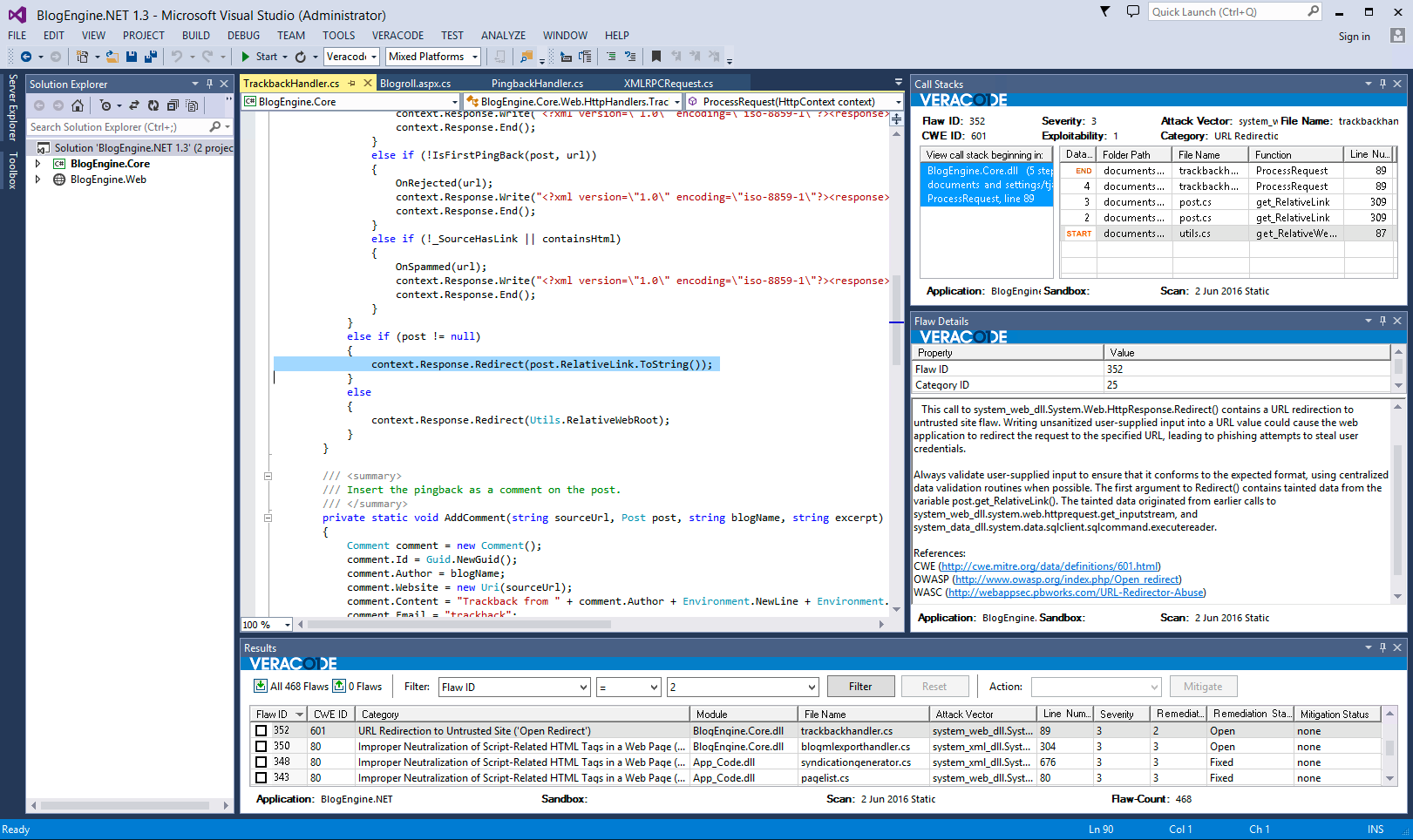
- #What is visual studio code analysis software
- #What is visual studio code analysis code
- #What is visual studio code analysis free
This includes additions to the editor and language support.
#What is visual studio code analysis code
Visual Studio Code can be extended via extensions, available through a central repository. Many Visual Studio Code features are not exposed through menus or the user interface but can be accessed via the command palette.

Unwanted files and folders can be excluded from the project tree via the settings. It supports many programming languages and a set of features that differs per language. This allows it to operate as a language-agnostic code editor for any language. Instead of a project system, it allows users to open one or more directories, which can then be saved in workspaces for future reuse. Support for additional languages can be provided by freely available extensions on the VS Code Marketplace. Visual Studio Code also ships with IntelliSense for JavaScript, TypeScript, JSON, CSS, and HTML, as well as debugging support for Node.js. This basic support includes syntax highlighting, bracket matching, code folding, and configurable snippets. Out of the box, Visual Studio Code includes basic support for most common programming languages. Visual Studio Code employs the same editor component (codenamed "Monaco") used in Azure DevOps (formerly called Visual Studio Online and Visual Studio Team Services). It is based on the Electron framework, which is used to develop Node.js web applications that run on the Blink layout engine. Visual Studio Code is a source-code editor that can be used with a variety of programming languages, including Java, JavaScript, Go, Node.js, Python, C++, C, Rust and Fortran. Microsoft has released most of Visual Studio Code's source code on GitHub under the permissive MIT License, while the releases by Microsoft are proprietary freeware. On April 14, 2016, Visual Studio Code graduated from the public preview stage and was released to the Web. On November 18, 2015, the source of Visual Studio Code was released under the MIT License, and made available on GitHub. A preview build was released shortly thereafter. Here's a link to Visual Studio Code's open source repository on GitHub.Īccording to the StackShare community, Visual Studio Code has a broader approval, being mentioned in 1104 company stacks & 2298 developers stacks compared to Visual Studio, which is listed in 657 company stacks and 978 developer stacks.Visual Studio Code was first announced on April 29, 2015, by Microsoft at the 2015 Build conference.

Visual Studio Code is an open source tool with 78.4K GitHub stars and 10.9K GitHub forks. "Intellisense, ui", "Complete ide and debugger" and "Plug-ins" are the key factors why developers consider Visual Studio whereas "Powerful multilanguage IDE", "Fast" and "Front-end develop out of the box" are the primary reasons why Visual Studio Code is favored.

Visual Studio can be classified as a tool in the "Integrated Development Environment" category, while Visual Studio Code is grouped under "Text Editor".
#What is visual studio code analysis free
Code is free and available on your favorite platform - Linux, Mac OSX, and Windows. Build and debug modern web and cloud applications. On the other hand, Visual Studio Code is detailed as " Build and debug modern web and cloud applications, by Microsoft".
#What is visual studio code analysis software
Visual Studio is a suite of component-based software development tools and other technologies for building powerful, high-performance applications.

Visual Studio vs Visual Studio Code: What are the differences?ĭevelopers describe Visual Studio as " State-of-the-art tools and services that you can use to create great apps for devices, the cloud, and everything in between".


 0 kommentar(er)
0 kommentar(er)
